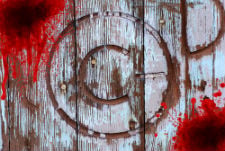 For more than a decade, rightsholders and anti-piracy groups in Sweden have criticized the scale of the penalties available for courts to hand down in cases of serious copyright infringement.
For more than a decade, rightsholders and anti-piracy groups in Sweden have criticized the scale of the penalties available for courts to hand down in cases of serious copyright infringement.
Perhaps the most famous case, involving the people behind The Pirate Bay, ended with defendants Peter Sunde, Fredrik Neij and Carl Lundström originally receiving eight, ten and four months in prison. As things stand the absolute maximum sentence is two years. The government now wants to challenge the status quo with changes to the law that will see the most egregious infringers jailed for much longer.
The amendments, which began with a 2017 investigation and cover many aspects of intellectual property including patents and trademarks, were first tabled more than two years ago. According to an announcement by the Swedish government, they have now been passed to the Law Council for consideration.
“There has been significant social development since the penalties for intellectual property infringement took their present form,” the government writes in its submission.
“The meaning of intellectual property rights has increased substantially at the same time as large-scale and industrially-operated infringement operations. This has serious consequences for society as a whole.
“It is therefore important that criminal law is designed so that this type of crime can be met with penalties commensurate with the seriousness of the offense. Therefore, in the Law Council’s remit, it is proposed that the penalties for the most serious cases of intellectual property infringement are sharpened and special penalties for intentional serious crimes are introduced in all intellectual property laws.”
To this end and in addition to regular fines, the proposals envision a two-tiered approach.
Less serious copyright infringement offenses will still be punishable by up to two years in prison (‘copyright infringement’) but should a crime be considered serious (‘gross copyright infringement’), the government wants to set a minimum of six months detention. This category of offenders, who will have shown an intent to commit large scale crime, face up to six years’ imprisonment.
To determine whether an intellectual property infringement is gross or serious, the government says that particular consideration must be given to whether the crime was preceded by special planning, part of a crime that was organized and/or extensive, or was of a “particularly dangerous nature.”
As previously reported, the government also looked at whether amendments would be required to more easily seize all kinds of property in response to infringement, including intangible assets such as domain names. This was most likely a nod towards the Pirate Bay case which dragged on for several years before the state was able to take over the thepiratebay.se domain.
In the event, the final proposals note that changes to confiscation standards can be omitted since developments in case law have rendered them unnecessary.
“There should be no new provisions introduced in intellectual property laws on the seizure of property which can reasonably be believed to be subject to confiscation. There is also no need for changes in the law regarding the handling of domain names that have been forfeited,” the proposals read.
“In case law, it has been found that the right to a domain name used as a means of committing copyright infringement constitutes such property that may be forfeited under the provisions of the Copyright Act. Also in relation to the general rules on the use of [infringement tools] in Chapter 36 of the Criminal Code it has been found in practice that any form of property can be forfeited.”
After consideration by the Law Council, the legislative amendments (pdf, Swedish) are proposed to enter into force on September 1, 2020.





